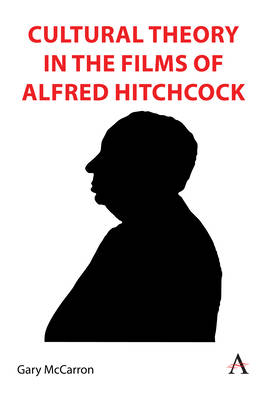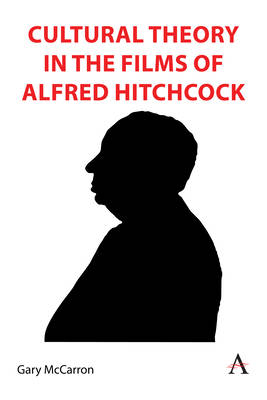
- Retrait gratuit dans votre magasin Club
- 7.000.000 titres dans notre catalogue
- Payer en toute sécurité
- Toujours un magasin près de chez vous
- Retrait gratuit dans votre magasin Club
- 7.000.0000 titres dans notre catalogue
- Payer en toute sécurité
- Toujours un magasin près de chez vous
Description
McCarron approaches the work of Alfred Hitchcock in a way that is unique in the world of film critique. Rather, than provide a biographical overview, or consider Hitchcock's work in the context of conventional film criticism, McCarron uses Hitchcock's films to illustrate ideas at play in the social sciences and philosophy even as he uses those same ideas to illustrate central aspects of Hitchcock's films. In short, while McCarron focuses on many of Hitchcock's most celebrated films, his broader concern is with a series of ideas crucial to Hitchcock's work as an innovative artist of the cinema. For example, McCarron interrogates the idea of the MacGuffin, Hitchcock's famous term for the motivating issue in a film's narrative. However, there is far more to the idea of the MacGuffin than is found in Hitchcock's description, as McCarron shows how political theorist Ernesto Laclau's theory of equivalential substitution effectively explains how the MacGuffin functions as a device to bridge the divide between the film's exegesis and the audience's emotional engagement in the story. In a similar vein, McCarron undertakes a close reading of Hitchcock's theory of 'pure cinema, ' indicating that while the concept is widely embraced by Hitchcock scholars, rarely do those scholars agree on what Hitchcock ultimately intended by the phrase. Tracing the development of the concept across the years, McCarron shows how Hitchcock's theory of pure cinema resonates with anthropological concepts of purity and even finds a place in current debates regarding so-called hybrid media. McCarron further explores Hitchcock's alleged moralism, showing how the problem of moral agency was often treated in Hitchcock's films as a highly complex and decidedly ambiguous condition. McCarron indicates the importance of re-viewing Hitchcock's films from points of view that plainly show that Hitchcock is not properly understood when simply described as 'the master of suspense, ' as his films are of enduring interest for a range of reasons that go well beyond their relevance for traditional film studies. Interpretations of his films gain in power and scope when we extend our analyses to the intricate interpretations of his work as it touches on subjects as diverse as politics, feminism, rhetoric, and philosophy. McCarron treats these larger intellectual constellations in considerable detail, bringing a fresh perspective to the study of the famed director's work.
Spécifications
Parties prenantes
- Auteur(s) :
- Editeur:
Contenu
- Nombre de pages :
- 240
- Langue:
- Anglais
- Collection :
- Tome:
- n° 1
Caractéristiques
- EAN:
- 9781839988462
- Date de parution :
- 11-07-23
- Format:
- Livre relié
- Format numérique:
- Genaaid
- Dimensions :
- 152 mm x 232 mm
- Poids :
- 498 g

Les avis
Nous publions uniquement les avis qui respectent les conditions requises. Consultez nos conditions pour les avis.






